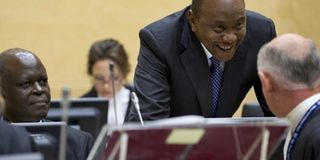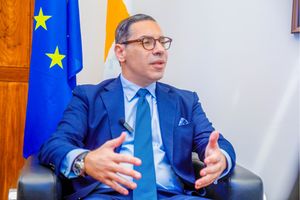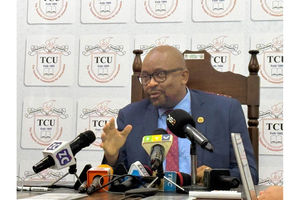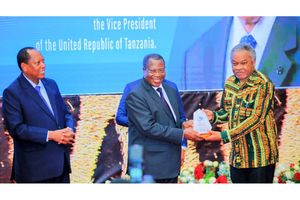ICC is being manipulated to suffocate Africa’s justice systems – British scholar

What you need to know:
In his recently launched book, UK-based scholar Phil Clark says The Hague-based court has been manipulated by state actors and has suffocated Africa’s existing justice mechanisms, writes Tobbias Jolly Owiny.
Kampala. Before a fully packed courtroom at The Hague on January 28, 2009, the International Criminal Court (ICC) prosecution called its first ever witness, a young man from Ituri, north eastern DR Congo, a moment that offered meaning to the court which had lasted barely seven years.
While testifying under a pseudonym, ‘Mr Witness’ stated that he had been recruited as a child soldier when rebels under the command of Thomas Lubanga abducted him while he was going to school 10 years earlier.
Although critics questioned why prosecution had only charged the DRC rebel leader with conscripting child soldiers even when communities in Ituri accused him of orchestrating bigger atrocities such as mass murder and rape, prosecution responded that the charges reflected the strongest evidence it gathered.
The witness, however, stunned the court after a lunch break when he demanded to retract his entire testimony on grounds that a Congolese NGO the prosecution had tasked to find witnesses had coached him on what to say on the stand.
Everything ‘Mr Witness’ had claimed in the morning, he said, were false.
Ten years later, with ICC trying cases in eight African states, most of the problems that were apparent in the Lubanga case, including outsourcing investigations to and using local intermediaries by the prosecution, continue to bedevil the court.
At Kenyan president Uhuru Kenyatta’s inauguration in April 2014, President Museveni belittled the ICC as a tool “grabbed by a bunch of self-seekers and shallow minded people whose interests is to mint revenge on those who hold opposing views”.
President Museveni’s statement was followed by that of Ethiopian foreign minister Tedros Adhanom at the AU summit in Addis Ababa a few months later who said majority of African states who subscribe to the court have lost trust and confidence in it.
Mr Adhanom announced that African nations had agreed that sitting heads of state should not be put on trial by the ICC since the court was a “political instrument targeting Africa and Africans”.
UK-based scholar Phil Clark of the SOAS University of London has authored a book pointing out how The Hague-based court has been manipulated by state actors and how it has suffocated Africa’s existing justice mechanisms.
In an interview with this newspaper last weekend while launching the book, Distant Justice: The Impact of the ICC on African Politics, in Gulu Town, Dr Clark said the court is too far from reaching its goals of investigating and successfully trying war crimes and crimes against humanity in Africa.
Upon investigating the operations of the court in Uganda and DR Congo from 2006 to 2018, Dr Clark says the court is undoubtedly a raw deal for Africans.
Adulterated evidences
The principal reason the ICC has failed to conduct effective investigations in Africa is the deployment of non-African investigators with limited experience in Africa, Dr Clark says.
“Across Africa, the prosecution choose to drop its investigators into crime scenes for only very few days and often dividing their time between multiple cases across several states. This also led to the collapse of the case against alleged FDLR [Democratic Forces for the Liberation of Rwanda] commander Callixte Mbarushimana in the DRC,” he says.
The case against FDLR’s Mbarushimana did not even proceed to trial because the evidence against him was too weak to get his charges confirmed by the ICC Pre-Trial Chamber.




